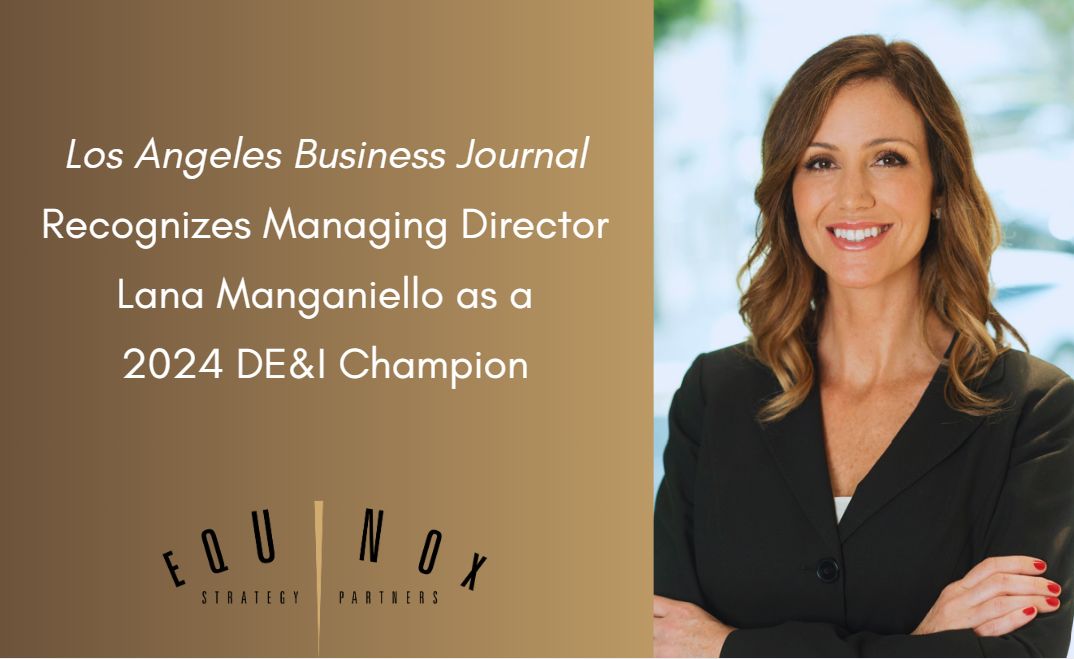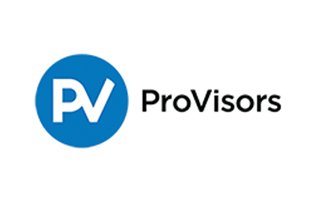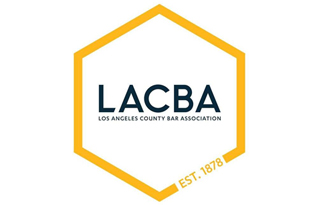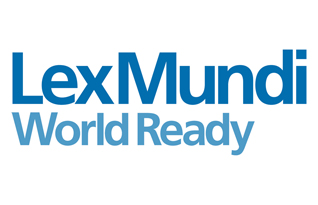EQUINOX STRATEGY PARTNERS
Charting Paths to Inclusion: How Business Development Skills Drive Diversity in the Legal Profession
Presented by: JD Supra

By Lana Manganiello
The time is now for legal leaders to prioritize the cultivation of business development skills among their attorneys as an integral component of their diversity and inclusion strategies…
As the world transitions into a new era post-pandemic, the legal profession is at a crossroads. The ways in which lawyers communicate, collaborate, and build relationships have been fundamentally altered by remote and hybrid work environments. This transformation necessitates a paradigm shift in how the legal profession cultivates and develops talent, especially when it comes to fostering diversity, equity, and inclusion (DEI).
Business development skills, which encompass a range of social skills and strategic thinking, are learned and essential for the success of all lawyers. The legal profession is notoriously challenging, and it is imperative for attorneys to find a path that not only aligns with their interests but also provides them with a sense of purpose and fulfillment. This is especially true for those who bear the additional burden of navigating a profession where they may experience or witness misogyny, racism, homophobia, or other forms of discrimination that make them feel like outsiders.
Empowering lawyers with business development skills is pivotal in improving diversity at the leadership level of law firms for a multitude of reasons:
Empowerment Through Clarity, Autonomy, and Confidence Building
Business development in the legal profession begins with introspection and clarity. Lawyers who engage in self-reflection to discern their career aspirations can develop a meaningful business development strategy aligned with their interests and values. This clarity provides purpose and a vision that helps navigate challenges at work.
Proficiency in business development empowers attorneys with the autonomy to pursue clients and matters that align with their interests, values, and goals. This autonomy is crucial in fostering job satisfaction by allowing lawyers to engage in meaningful work that resonates with them, while also granting them the ability to choose whom they work with and exercise discretion in what they choose to pass on.
When lawyers feel they have leverage, are aligned with their work, feel invested in by the firm, and have a sense of control over their careers, they are more likely to forge a mutually beneficial path within the organization. This is important as new associate classes are more diverse than ever before, and ensuring their early success and advancement will contribute to improving diversity in leadership at the organization.
Mentorship and Sponsorship
The same business development skills that empower lawyers to pursue ideal work and clients also enable them to identify and connect with potential mentors and sponsors within the firm. By effectively communicating, networking, and building relationships, lawyers can proactively seek individuals who can support their career growth.
Forming relationships with mentors and sponsors is instrumental in receiving guidance, opportunities, and advocacy, all of which are crucial for career advancement. As lawyers move up within the organization, they become more visible and serve as powerful examples of representation and inclusion, demonstrating to diverse attorneys that there is a place for them in the firm, embodying the principle of “if you see it, you can be it.”
Adapting to Market Demands and Building a Diverse Client Base
The legal market is in a state of evolution, with clients increasingly valuing and demanding diversity in their legal teams. This is driven by the recognition that diverse legal teams offer a range of perspectives, which often leads to enhanced solutions and outcomes.
Diverse lawyers equipped with business development skills are not only able to establish and nurture relationships with diverse clients, but also understand and anticipate the needs of a shifting client base. In doing so, they contribute to building a varied client portfolio, adding an element of stability to the firm.
This adaptation not only fulfills market demands but strengthens the firm’s commitment to diversity, which can have a positive impact on both the firm’s culture, reputation and bottom line.
Creating Opportunities and Gaining Leverage for Influence
As lawyers hone their business development skills, they become adept at attracting clients and generating revenue for the firm. This increased capability not only makes them more valuable to the firm but also serves as a catalyst for promotions, leadership opportunities and added leverage.
This control, coupled with their unique perspectives and experiences, equips them with the influence needed to advocate for more inclusive policies and practices. In effect, they become change agents who can play a pivotal role in transforming the firm’s culture, making it more attractive to both clients and talent, and ensuring that diversity is woven into the fabric of the firm’s operations and values.
By empowering attorneys, especially those from diverse backgrounds, with business development skills early in their careers, we can enable them to carve out a trajectory that is both personally and professionally rewarding. The future of law is undoubtedly diverse, and it is imperative that firms take action so they can continue to thrive in an ever-changing landscape.
The time is now for legal leaders to invest in and prioritize the cultivation of business development skills among their attorneys as an integral component of their diversity and inclusion strategies. By doing so, they will be fostering a culture that not only reflects the tapestry of the society we live in but also resonates with the values and expectations of the new generation of legal professionals and clients.



















